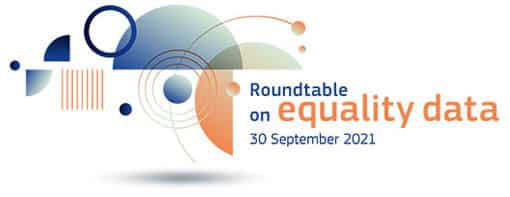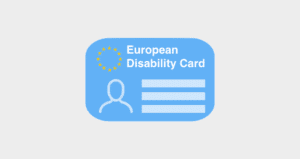On 30th of September 2021, the EUD attended a ‘Roundtable Discussion on Equality Data’, hosted by the European Commission. Its purpose was to focus on examining the obstacles preventing the collection of accurate data on equality and fostering an exchange of best practices to encourage Member States across the EU to participate in gathering this data.
The Commissioner for Equality, Helena Dalli, opened the discussions by reminding stakeholders that equality is one of the values which the European Union is founded upon, and it is enshrined in Article Two of the Treaty of the European Union. She also cited the impact of the COVID-19 pandemic, which has fuelled discrimination and violence against minority groups to the extent that we do not have a complete picture of the damage. Commissioner Dalli argued that we need comparable and regular data on equality and discrimination, which could advance us towards an equal society.
Michael O’Flaherty, Director for the Fundamental Rights Agency (FRA) debunked some myths surrounding data collection:
We do not need a dedicated gathering of data anymore, because we have big data.
We have enough evidence from the data already collected.
It is impossible to gather comparable data regarding certain groups who are marginalised in our societies; this requires too much effort.
GDPR is an excuse not to collect data.
Mr O’Flaherty said that rather than being unneeded, overly complex, or prohibited by GDPR, data collection is actually a method of engaging with people meaningfully in order to bring about good results.
Carlien Scheele, Director of the European Institute for Gender Equality, advocated the importance of having accurate data, e.g. on women with disabilities and violence, to support policies. She went on to say that data on intersectionality are intricate as it shapes the lives of all women and men to varying degrees. Mrs Scheele related the need for data to the recent European Commission’s Gender Equality Strategy (2020 – 2025), which seeks to incorporate intersectionality, including the gender perspectives, in all stages of policy design throughout all EU policy areas. She concluded that more data that will allow a more in-depth analysis of gender issues and therefore help tackle the priority areas identified in the strategy and enable policymakers to design policies that do not exclude certain groups of women and men.
The discussion featured speakers from equality bodies and representatives from the Member States, the Fundamental Rights Agency (FRA), and other EU agencies and international organisations. It was useful to see what people in other fields view as the necessary steps to collect accurate and meaningful data on equality, and how these data can be used to prevent discrimination and create national and European policies that protect women, children, persons with disabilities and ethnic minorities.













